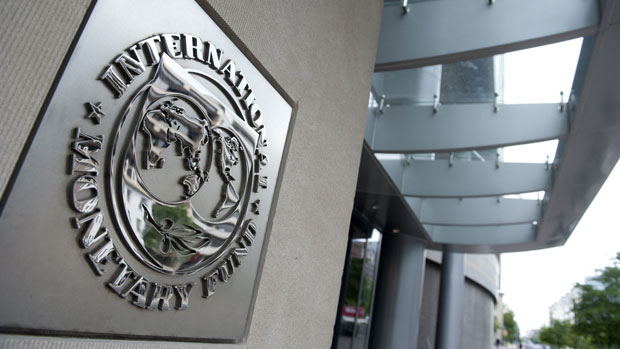IMF drops anti-protectionism pledge amid US pressure
Organisation softens language to focus on "global trade and current account imbalances"

A free daily email with the biggest news stories of the day – and the best features from TheWeek.com
You are now subscribed
Your newsletter sign-up was successful
The International Monetary Fund and World Bank have dropped a pledge to fight trade protectionism from the closing note of their spring meetings, under pressure from the US.
"An IMF statement said members would 'work together' to reduce global trade and current account imbalances 'through appropriate policies'," says the BBC.
"Earlier in the week the IMF had warned that protectionist policies could choke off improving global growth."
The Week
Escape your echo chamber. Get the facts behind the news, plus analysis from multiple perspectives.

Sign up for The Week's Free Newsletters
From our morning news briefing to a weekly Good News Newsletter, get the best of The Week delivered directly to your inbox.
From our morning news briefing to a weekly Good News Newsletter, get the best of The Week delivered directly to your inbox.
Seeking to downplay the significance of the decision, Mexican central bank chief Agustin Carstens, who chairs the IMF steering committee, said protectionism was an "ambiguous" term.
"Instead of dwelling on what that concept means, we managed to put it in a more positive, more constructive framework," he said.
As part of his America First policy, Donald Trump wants to cut trade deficits and impose tariffs on nations that have trade surpluses with the US, including China and Germany.
Despite warnings from the IMF that tariffs could choke global growth, US Treasury Secretary Steven Mnuchin said the administration was committed to delivering "reciprocal trade deals and reciprocal free trade".
A free daily email with the biggest news stories of the day – and the best features from TheWeek.com
"What that means is that if our markets are open, there should be a reciprocal nature to other markets which should be open as well," said Mnuchin.
Last month, G20 ministers failed to renew their long-standing pledge to bolster free trade after opposition from the US.
-
 5 cinematic cartoons about Bezos betting big on 'Melania'
5 cinematic cartoons about Bezos betting big on 'Melania'Cartoons Artists take on a girlboss, a fetching newspaper, and more
-
 The fall of the generals: China’s military purge
The fall of the generals: China’s military purgeIn the Spotlight Xi Jinping’s extraordinary removal of senior general proves that no-one is safe from anti-corruption drive that has investigated millions
-
 Why the Gorton and Denton by-election is a ‘Frankenstein’s monster’
Why the Gorton and Denton by-election is a ‘Frankenstein’s monster’Talking Point Reform and the Greens have the Labour seat in their sights, but the constituency’s complex demographics make messaging tricky
-
 Labour shortages: the ‘most urgent problem’ facing the UK economy right now
Labour shortages: the ‘most urgent problem’ facing the UK economy right nowSpeed Read Britain is currently in the grip of an ‘employment crisis’
-
 Will the energy war hurt Europe more than Russia?
Will the energy war hurt Europe more than Russia?Speed Read European Commission proposes a total ban on Russian oil
-
 Will Elon Musk manage to take over Twitter?
Will Elon Musk manage to take over Twitter?Speed Read The world’s richest man has launched a hostile takeover bid worth $43bn
-
 Shoppers urged not to buy into dodgy Black Friday deals
Shoppers urged not to buy into dodgy Black Friday dealsSpeed Read Consumer watchdog says better prices can be had on most of the so-called bargain offers
-
 Ryanair: readying for departure from London
Ryanair: readying for departure from LondonSpeed Read Plans to delist Ryanair from the London Stock Exchange could spell ‘another blow’ to the ‘dwindling’ London market
-
 Out of fashion: Asos ‘curse’ has struck again
Out of fashion: Asos ‘curse’ has struck againSpeed Read Share price tumbles following the departure of CEO Nick Beighton
-
 Universal Music’s blockbuster listing: don’t stop me now…
Universal Music’s blockbuster listing: don’t stop me now…Speed Read Investors are betting heavily that the ‘boom in music streaming’, which has transformed Universal’s fortunes, ‘still has a long way to go’
-
 EasyJet/Wizz: battle for air supremacy
EasyJet/Wizz: battle for air supremacySpeed Read ‘Wizz’s cheeky takeover bid will have come as a blow to the corporate ego’